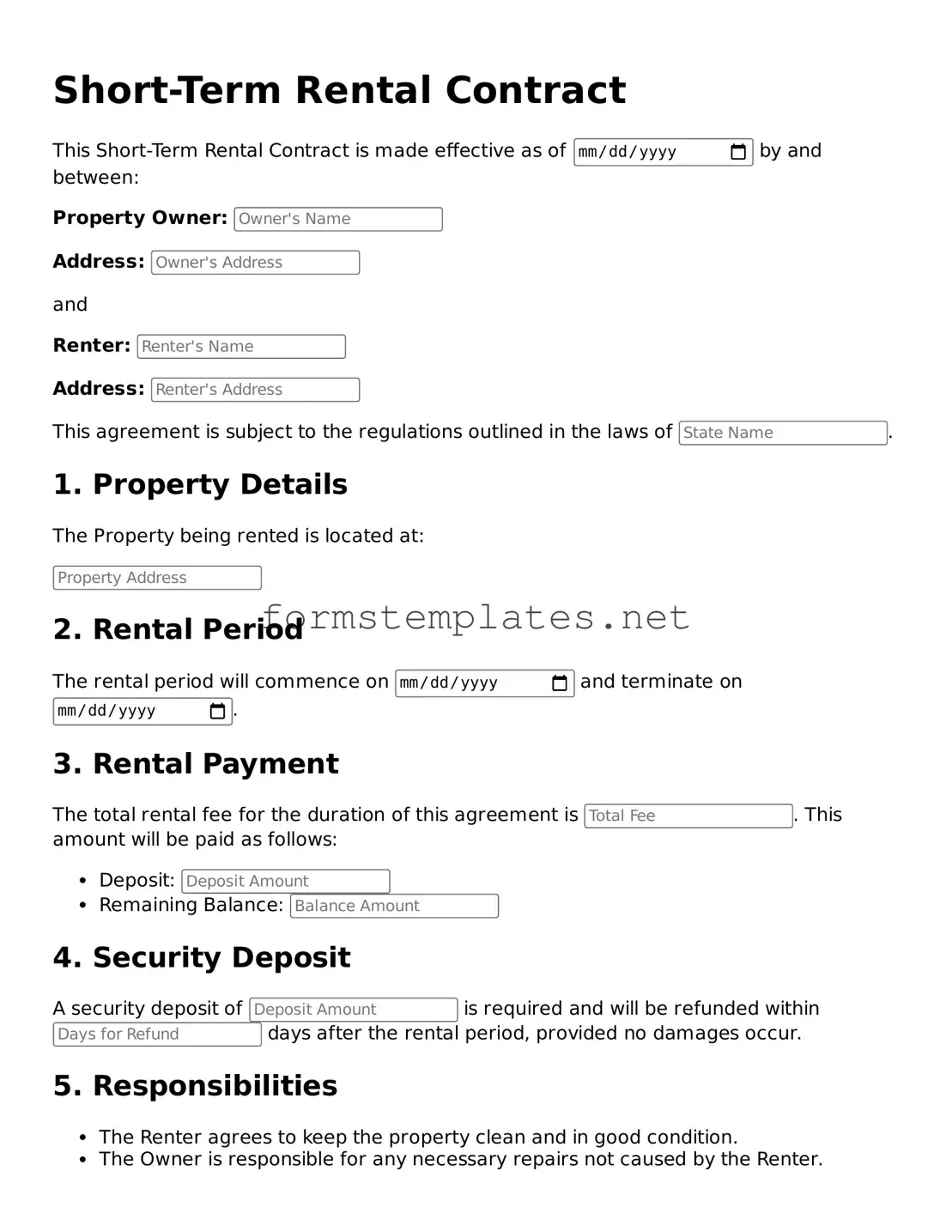Attorney-Verified Short-Term Rental Contract Form
The Short-Term Rental Contract is a legal document that outlines the terms and conditions for renting a property for a brief period, typically less than 30 days. This contract serves to protect both the property owner and the renter by clearly defining responsibilities, payment terms, and house rules. Understanding this form is essential for anyone looking to engage in short-term rentals, ensuring a smooth and transparent rental experience.
Open Editor Now

Attorney-Verified Short-Term Rental Contract Form
Open Editor Now

Open Editor Now
or
⇓ PDF Form
Your form still needs attention
Finalize Short-Term Rental Contract online — simple edits, saving, and download.